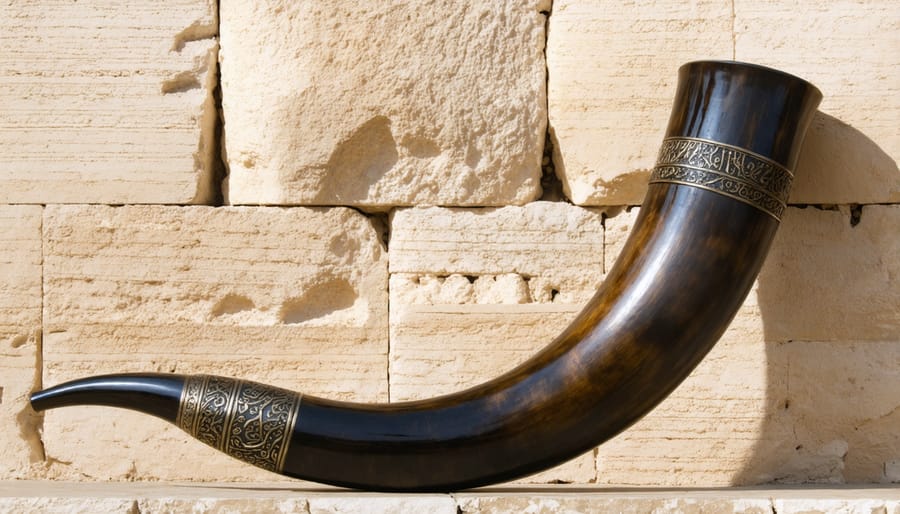From ancient festivals commanded by God to celebrations that shaped the spiritual journey of His people, the biblical holidays significance reaches far beyond mere ceremonial observances. The Bible presents a rich tapestry of holy days that reflect God’s redemptive plan for humanity, each carrying profound spiritual meaning that continues to resonate with believers today. These divine appointments, from the solemnity of Passover to the joy of the Feast of Tabernacles, weren’t simply cultural traditions—they were purposefully designed commemorations that pointed to Christ and established rhythms of worship, remembrance, and celebration within God’s community.
As modern Christians seek to understand their spiritual heritage and deepen their faith, exploring these biblical festivals offers invaluable insights into God’s character, His relationship with His people, and the fulfillment of His promises through Jesus Christ. Whether commanded in the Torah or observed during Jesus’ earthly ministry, these celebrations provide a framework for understanding God’s redemptive timeline and His eternal purposes for His people.
The Three Pilgrimage Festivals
Passover (Pesach)
Passover stands as one of the most significant celebrations in biblical history, deeply rooted in ancient faith traditions that continue to resonate with believers today. This pivotal feast commemorates God’s miraculous deliverance of the Israelites from Egyptian bondage, as recorded in Exodus 12. The name “Passover” derives from how the Lord “passed over” the homes of the Israelites that were marked with lamb’s blood, sparing their firstborn during the final plague in Egypt.
The biblical account details specific instructions for observing this feast, including the selection of an unblemished lamb, the application of its blood on doorposts, and the eating of unleavened bread. These elements carry profound symbolism that points to Jesus Christ, whom the Apostle Paul identifies as “our Passover lamb” (1 Corinthians 5:7). The unleavened bread represents sinlessness and haste in following God’s deliverance, while the bitter herbs remind us of the hardships of bondage.
For Christians, Passover holds special significance as Jesus celebrated His last supper during this feast, establishing the sacrament of communion. The timing of Christ’s crucifixion during Passover powerfully demonstrates how He fulfilled the festival’s prophetic symbolism, offering Himself as the perfect sacrifice for humanity’s redemption.
Today, many Christians choose to explore the rich meanings of Passover through Messianic Seders or educational observations, discovering deeper connections between God’s redemptive work in the Exodus story and Christ’s ultimate sacrifice. This celebration reminds us of God’s faithful protection, mighty deliverance, and the freedom we have in Jesus.

Festival of Weeks (Shavuot/Pentecost)
The Festival of Weeks, also known as Shavuot in Hebrew and Pentecost in Greek, occurs fifty days after Passover and stands as one of the three major pilgrimage festivals ordained by God in the Old Testament. Originally, this celebration marked the end of the spring grain harvest, when Israelites would bring their firstfruits as offerings to the Lord in gratitude for His provision.
In Exodus 34:22, God commands, “Celebrate the Festival of Weeks with the firstfruits of the wheat harvest.” This agricultural celebration carried deep spiritual significance, as it reminded the people of God’s faithfulness in providing for their needs and their responsibility to respond with thanksgiving and generosity.
The festival took on even greater meaning in Jewish tradition as it became associated with the giving of the Law to Moses on Mount Sinai. Just as God provided physical sustenance through the harvest, He also gave spiritual nourishment through His commandments and covenant.
For Christians, Pentecost holds special significance as the day when the Holy Spirit descended upon the disciples in Jerusalem, as recorded in Acts 2. This outpouring marked the birth of the Church and fulfilled Jesus’ promise to send the Comforter. The timing was divine – on the same festival that celebrated both the harvest and the giving of the Law, God poured out His Spirit, empowering believers to live out His purposes.
Today, this festival reminds us of God’s provision in both physical and spiritual realms, the importance of gratitude, and the transformative power of the Holy Spirit in our lives. Many Christians observe Pentecost Sunday as a time to celebrate the ongoing work of the Holy Spirit in the Church.
Festival of Tabernacles (Sukkot)
The Festival of Tabernacles, or Sukkot, is one of the most joyous celebrations commanded by God in the Bible. This seven-day feast commemorates the Israelites’ 40-year journey through the wilderness, during which God provided shelter and sustained His people. During this time, the Israelites lived in temporary dwellings called sukkot (booths or tabernacles), reminding them of their complete dependence on God’s provision.
In Leviticus 23:39-43, God instructs His people to live in booths for seven days, using branches from palm trees and other leafy trees to construct these temporary shelters. This practice continues today among Jewish communities, who build sukkot in their yards or on balconies, eating meals and sometimes sleeping in them during the festival.
The spiritual significance of Sukkot extends beyond its historical remembrance. It points to God’s desire to dwell among His people, foreshadowing Jesus Christ’s incarnation when He “tabernacled” among us (John 1:14). The festival also carries profound prophetic meaning, as described in Zechariah 14:16-19, where it’s revealed that all nations will eventually celebrate the Feast of Tabernacles in worship of the Lord.
For Christians, Sukkot reminds us that we are sojourners in this world, looking forward to our eternal dwelling place with God. The temporary nature of the sukkah (booth) teaches us to trust in God’s provision and protection rather than earthly security. This beautiful fall festival also emphasizes community, hospitality, and thanksgiving, encouraging believers to share their blessings with others while remembering God’s faithfulness throughout generations.

The High Holy Days

Feast of Trumpets (Rosh Hashanah)
The Feast of Trumpets, also known as Rosh Hashanah, marks the beginning of the Jewish civil new year and occurs on the first day of the seventh month (Tishri) in the biblical calendar. This significant holiday is established in Leviticus 23:24-25, where God commands, “In the seventh month, on the first day of the month, you shall observe a day of solemn rest, a memorial proclaimed with blast of trumpets, a holy convocation.”
The distinctive feature of this feast is the blowing of the shofar (ram’s horn), which serves multiple spiritual purposes. In biblical times, trumpet blasts were used to gather the assembly, announce important events, and signal warfare. Prophetically, many Christians see the Feast of Trumpets as pointing to the future return of Christ, as referenced in 1 Thessalonians 4:16: “For the Lord Himself will descend from heaven with a shout, with the voice of an archangel, and with the trumpet of God.”
This holiday traditionally calls for self-reflection, repentance, and spiritual renewal. It begins a ten-day period known as the Days of Awe, culminating in Yom Kippur (the Day of Atonement). For believers today, the Feast of Trumpets serves as a powerful reminder to remain spiritually alert and prepared for Christ’s return. It encourages us to examine our hearts, strengthen our relationship with God, and live in anticipation of His promises being fulfilled.
Day of Atonement (Yom Kippur)
The Day of Atonement, or Yom Kippur, stands as the most sacred and solemn observance in the biblical calendar. Established by God in Leviticus 16, this profound holiday reflects God’s redemptive plan for humanity through the symbolic ritual of atonement for sins.
On this day, the high priest would enter the Holy of Holies – the only time anyone could do so throughout the year – to make atonement for the entire nation of Israel. The ritual involved two goats: one sacrificed for the sins of the people, and the other, known as the scapegoat, released into the wilderness carrying the symbolic burden of the nation’s transgressions.
For Christians, Yom Kippur holds special significance as it foreshadows Christ’s ultimate sacrifice. The blood sprinkled on the mercy seat by the high priest points to Jesus’ perfect sacrifice, while the scapegoat represents how He carried our sins far away, “as far as the east is from the west” (Psalm 103:12).
This day called for complete fasting and rest, emphasizing the gravity of sin and the need for genuine repentance. The people would gather to pray, reflect, and seek reconciliation with both God and their neighbors. Today, this holiday reminds us of Christ’s complete work of atonement and calls us to examine our hearts, seek forgiveness, and celebrate the magnificent grace freely given through Jesus’ sacrifice.
Other Biblical Celebrations
Purim
Purim stands as a powerful testament to God’s faithfulness in protecting His people, commemorating the miraculous events recorded in the Book of Esther. This joyous celebration remembers how God used Queen Esther and her cousin Mordecai to save the Jewish people from destruction at the hands of the wicked Haman in ancient Persia.
The story unfolds as Queen Esther, guided by divine providence, courageously reveals her Jewish identity to King Xerxes and exposes Haman’s plot to annihilate her people. Through her bold faith and wisdom, disaster was averted, and the Jewish people were granted the right to defend themselves against their enemies.
The name “Purim” comes from the word “pur,” meaning “lot,” referring to the lots Haman cast to determine the day for destroying the Jews. Today, this festival is marked by the reading of the Book of Esther, giving gifts to the poor, sharing food with friends, and rejoicing in God’s deliverance. While Purim is not one of the appointed festivals in Leviticus, its inclusion in Scripture demonstrates God’s ongoing care for His people throughout history and His sovereign power to turn mourning into dancing.
Festival of Dedication (Hanukkah)
The Festival of Dedication, also known as Hanukkah, appears in the New Testament when Jesus walked in Solomon’s Porch during this celebration (John 10:22-23). While not one of the festivals established in the Old Testament, this eight-day celebration commemorates the miraculous rededication of the Temple in Jerusalem following the Maccabean Revolt in 165 BC. During this time, a small amount of oil miraculously burned for eight days, allowing enough time to prepare new consecrated oil for the Temple menorah.
Though Hanukkah originated after the Old Testament period, its mention in John’s Gospel provides an interesting glimpse into the cultural and religious life during Jesus’ time. The festival’s themes of dedication, light, and God’s miraculous provision resonated with early believers and continue to inspire Christians today. Jesus chose this celebration of light to declare Himself as the Light of the World and the Good Shepherd, making profound statements about His identity and mission.
The festival reminds us of God’s faithfulness in preserving His people and the importance of dedicating our lives as living temples to His service.
The biblical holidays we’ve explored continue to offer profound spiritual lessons for Christians today. By understanding and reflecting on these sacred celebrations, we can deepen our relationship with God and strengthen our faith communities. These biblical festivals and community gatherings remind us of God’s faithfulness throughout history and His ongoing work in our lives.
While we may not observe these festivals exactly as ancient believers did, their underlying themes of redemption, thanksgiving, and spiritual renewal remain deeply relevant. Each holiday serves as a reminder of God’s character and His promises, offering opportunities for personal reflection, corporate worship, and spiritual growth.
As modern Christians, we can draw inspiration from these biblical celebrations to create meaningful rhythms of worship and remembrance in our own lives. Whether through special church services, family devotions, or personal meditation on Scripture, these ancient holy days can guide us toward a richer, more intentional faith journey.
Let us embrace the wisdom and spiritual heritage found in these biblical holidays, allowing them to shape our understanding of God’s story and our place within it. May they continue to inspire our worship, strengthen our communities, and draw us closer to our Creator.
